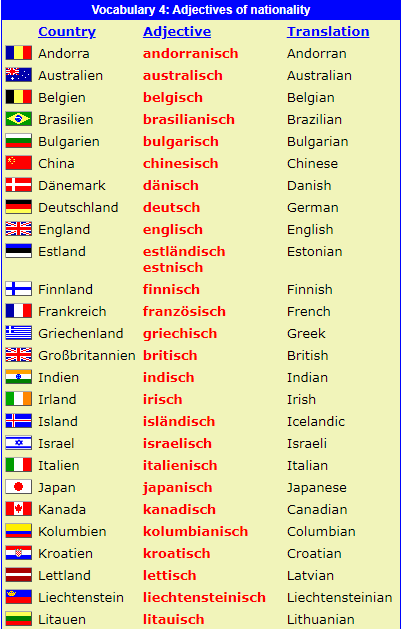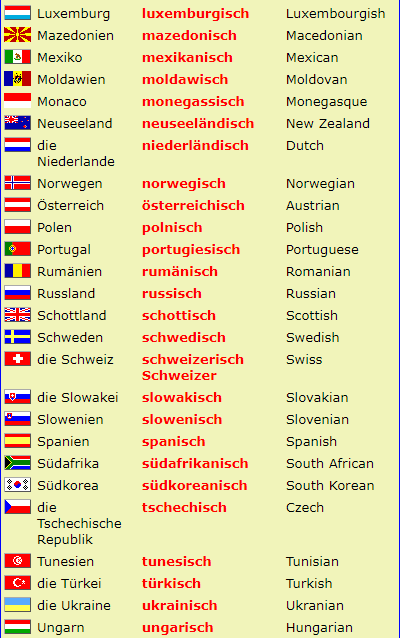In Chapter 2 we learned how to express your nationality, and discovered that wheras English uses an adjective - i.e. "I am English" -, German uses a noun without a different article - "Ich bin Engländer" (literally: "I am Englishman").



Grammatical Points
1. Unlike English, adjectives referring to countries take a small letter in German. Thus "my German uncle" would be translated as "mein deutscher Onkel".
2. Adjectives of nationality take adjective endings in exactly the same way as other adjectives.
3. There are two different adjectives to translate "Swiss". The first of these - "schweizerisch" behaves like any other adjective of nationality. The second however "Schweizer" always starts with a capital letter and never takes adjective endings. Thus "Swiss eggs" could either be translated as "schweizerische Eier" (= with endings) or "Schweizer Eier" (= without endings).
 英语
英语 日语
日语 韩语
韩语 法语
法语 西班牙语
西班牙语 意大利语
意大利语 阿拉伯语
阿拉伯语 葡萄牙语
葡萄牙语 越南语
越南语 俄语
俄语 芬兰语
芬兰语 泰语
泰语 丹麦语
丹麦语 对外汉语
对外汉语



